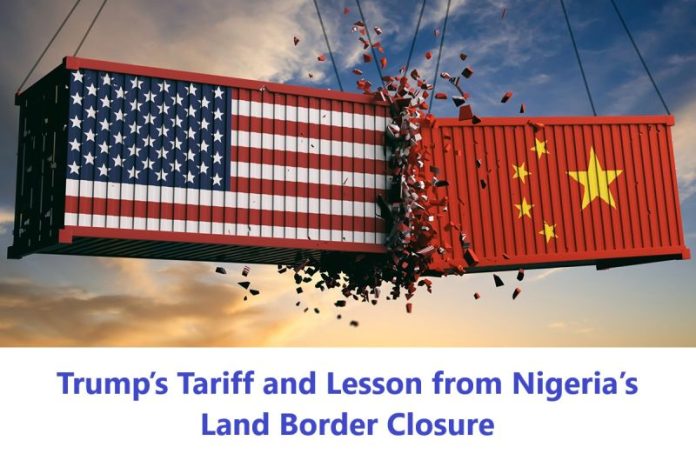Renowned professor, entrepreneur, and investor Ndubuisi Ekekwe has weighed in on the escalating trade tensions between the United States and China, warning of potential global economic shifts as a result of U.S. tariff policies.
In response to a fresh 10% tariff imposed by the U.S. government, China has retaliated with a package of tariffs on American goods, signaling a sharp escalation in economic tensions between the world’s two largest economies. The move, announced by China’s finance ministry on February 4, reignites a long-standing trade war and raises concerns over broader global economic consequences.
Shifting Global Trade Dynamics
Ekekwe highlighted how past trade realignments have led to unexpected outcomes, citing Mexico and Canada, which successfully adapted to trade pressures. However, he expressed uncertainty about how China will respond, cautioning that U.S. policies may push global economies to explore alternative trade partnerships.
He pointed to Nigeria’s border closure policy as a cautionary tale. According to Ekekwe, Nigeria’s decision to cut off land trade with neighboring countries significantly impacted its economy, driving small businesses in Aba, Ibadan, and Onitsha into decline. Before the closure, Onitsha was the largest open market in West Africa, serving as a commercial hub for Cameroon, Togo, and Benin Republic. However, since the restriction, the city has struggled to regain its former economic vibrancy.
“Nigeria’s policy ended up benefiting Togo’s Port of Lome, which became West Africa’s busiest port, surpassing Nigerian ports despite Togo’s much smaller population,” Ekekwe noted. “Although Abidjan’s port has since overtaken Lome, this shift highlights how economic decisions can redefine regional trade landscapes.”
Lessons from Brexit and U.S. Trade Policies
Drawing parallels to the United Kingdom’s post-Brexit struggles, Ekekwe emphasized the risks of economic overconfidence. He pointed out that, despite the UK’s former dominance in supplying Europe, Brexit has significantly weakened the country’s economic standing.
Ekekwe cautioned that if the U.S. fails to adopt a nuanced approach, it could inadvertently drive economic opportunities toward China—similar to how past U.S. policies pushed business to Panama.
“The Trump administration must carefully evaluate its actions,” he warned. “Reckless trade strategies could accelerate China’s global economic influence, just as past missteps led to unintended consequences in other regions.”
As the trade war intensifies, analysts will be watching closely to see how global markets respond and whether countries will, indeed, seek alternative economic alliances in response to U.S. policies.




